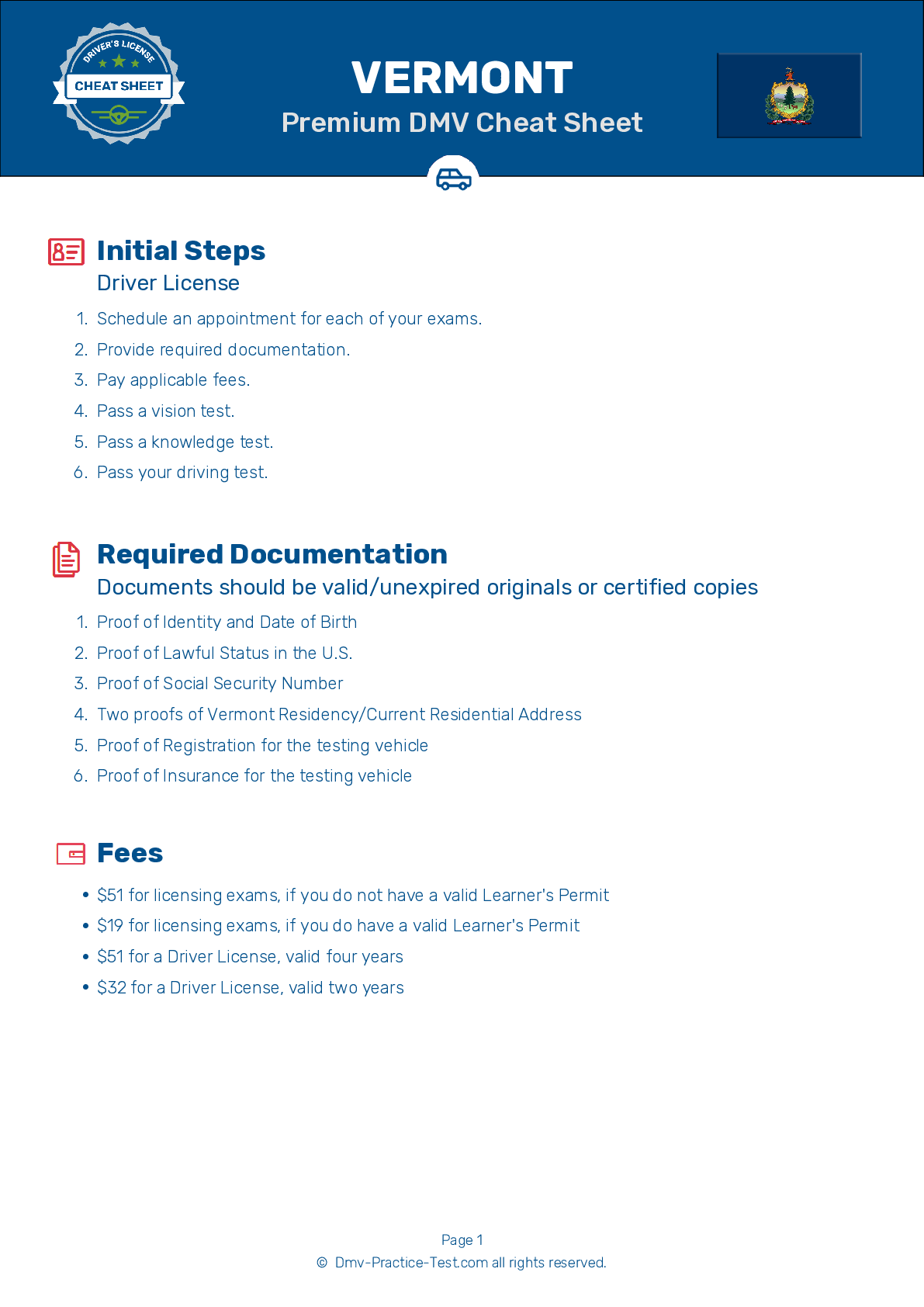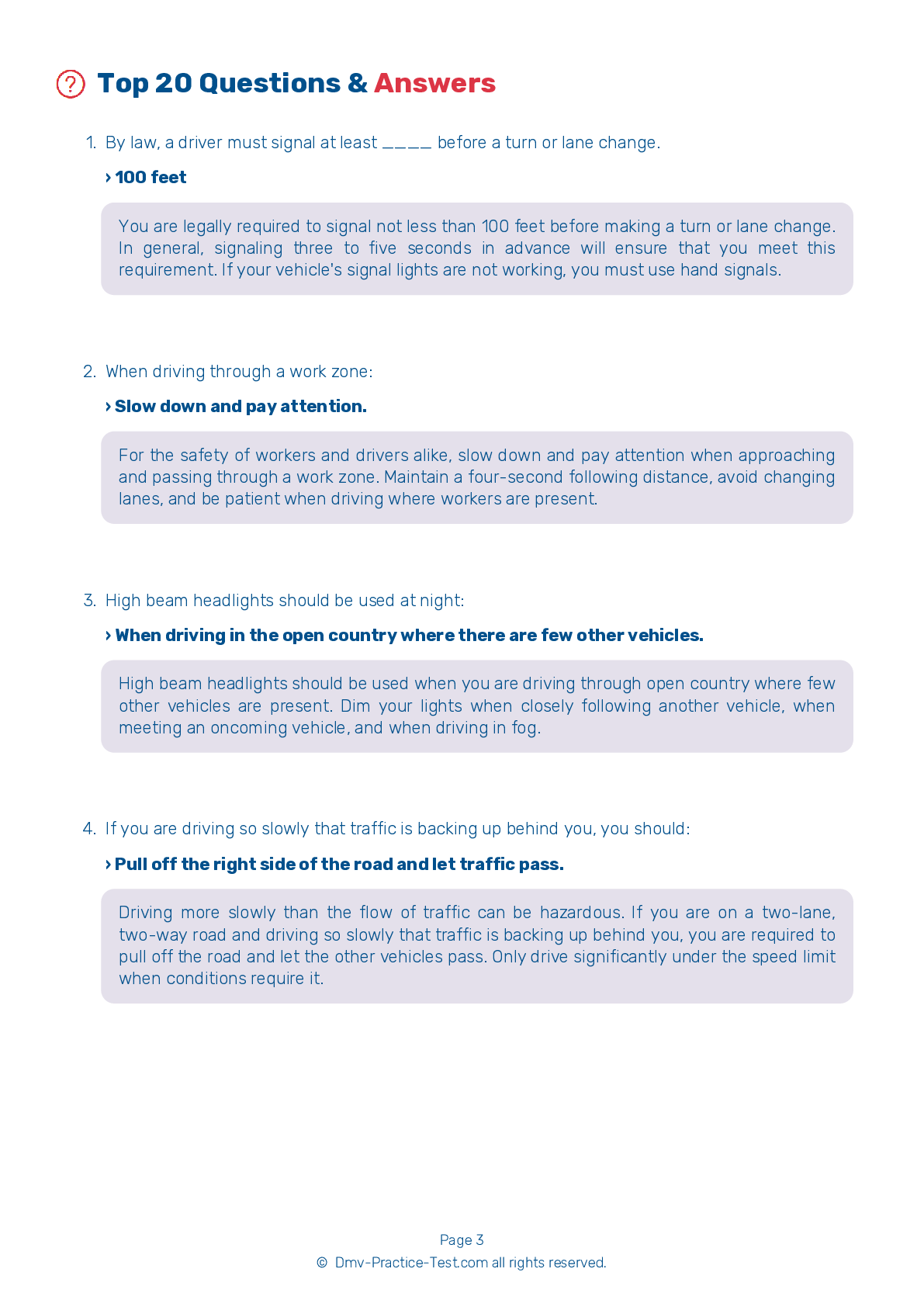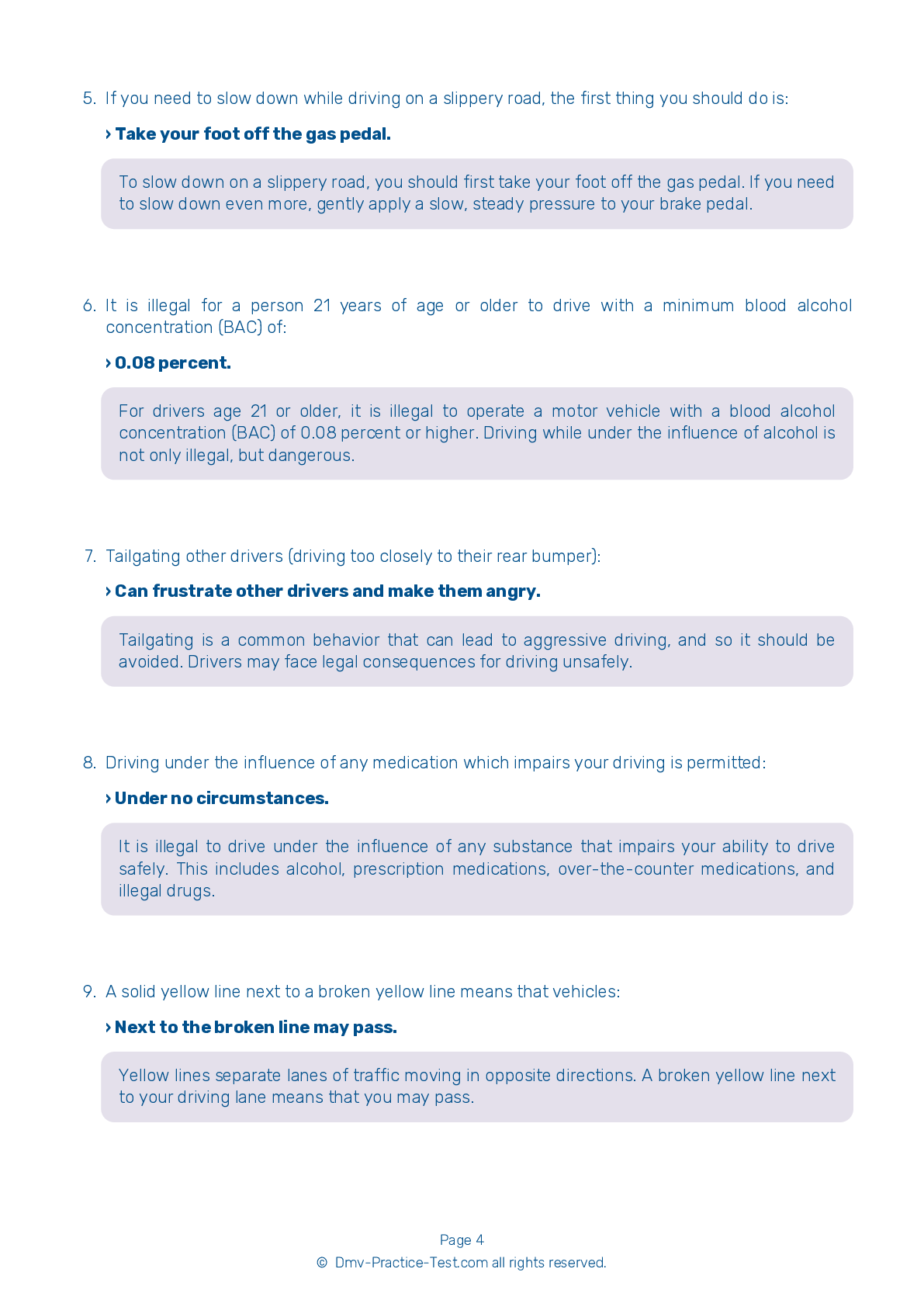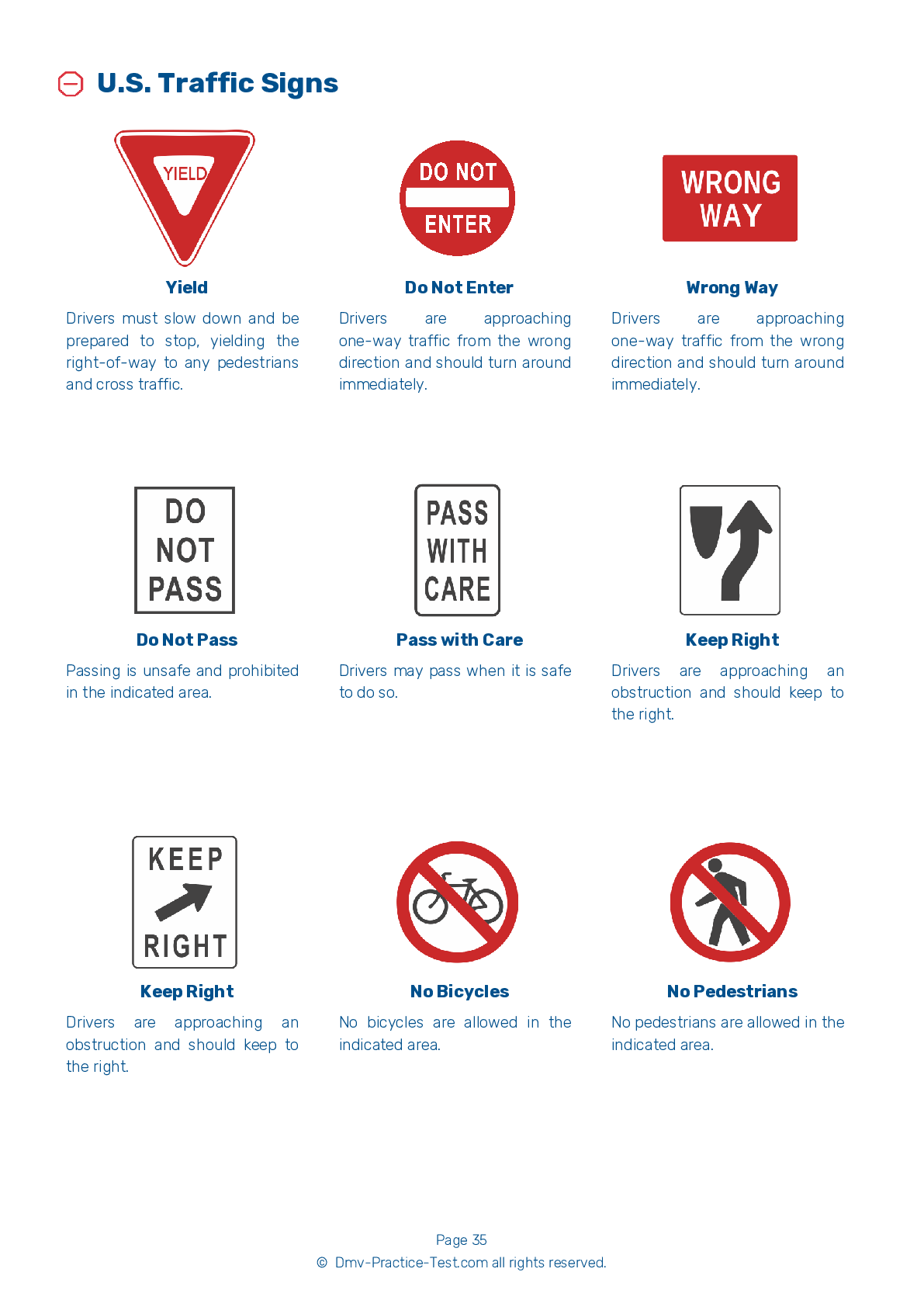FREE Vermont DMV Practice Test #23
The Vermont DMV practise examinations have been updated for January 2025. It includes questions based on the Vermont Driver Handbook's most significant traffic signals and legislation for 2025. Use actual questions that are very similar (often identical!) to the DMV driving permit test and driver's licence exam to study for the DMV driving permit test and driver's licence exam.
On the practise exam, each question gets a tip and explanation to help you remember the concepts. The written component of the official Vermont DMV test will include questions about traffic rules, traffic signs, and driving statutes, as well as knowledge from the Driver Handbook.
To obtain a passing grade, you must correctly answer 16 of the 20 questions. Use the practise exam provided by the Vermont Department of Motor Vehicles to help you prepare for your instruction permit or driver's licence.
The DMV exam is available in several languages.
Using any kind of testing assistance will result in an automatic fail, and the DMV may take additional action against your driver's licence, so stay away from it.
1 . To help prevent crashes, you should:
Crashes often happen because one driver does something that other road users are not expecting. You should communicate with other motorists, bicyclists, and pedestrians by doing things like signaling when slowing down, stopping, or changing direction. Use your emergency signals or horn when appropriate.
2 . Traffic signals sometimes display arrows to control turns from specific lanes. A solid yellow arrow:
A solid yellow arrow has the same meaning as a yellow traffic light. When approaching a solid yellow arrow, you must reduce your speed and prepare for a red light.
3 . Which of the following statements is true?
When passing, you must always signal at least 100 feet in advance of your lane change. Always check behind you in your mirrors and look over your shoulder to check your blind spot. Wait until you can see both headlights of the passed car in your rearview mirror before returning to your original lane.
4 . Many crashes are caused by:
Many crashes are caused by drivers who are driving too fast for conditions. Always drive within the legal speed limits and decrease your speed any time conditions are less than perfect.
5 . This road sign means:
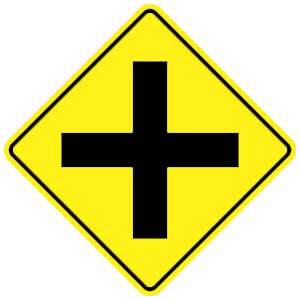
This sign means that you are approaching an upcoming intersection. Watch carefully for cross traffic.
6 . Night driving can be more difficult than driving during the day because:
At night, your field of vision is reduced. To make sure you are able to react to hazards on the roadway, always use appropriate headlights. Drive slowly enough that you are able to stop within the distance that you can see ahead.
2025 Vermont | Frequently Asked Questions
1. Not checking mirrors and blind spots before changing lanes or turning.
2. Speeding or driving too slowly for the conditions or posted speed limit.
3. Not coming to a complete stop at stop signs or red lights.
4. Incorrect signalling or not signalling at all.
5. Poor parking, especially parallel parking.
Remember, practice makes perfect, so take time to hone your skills.
